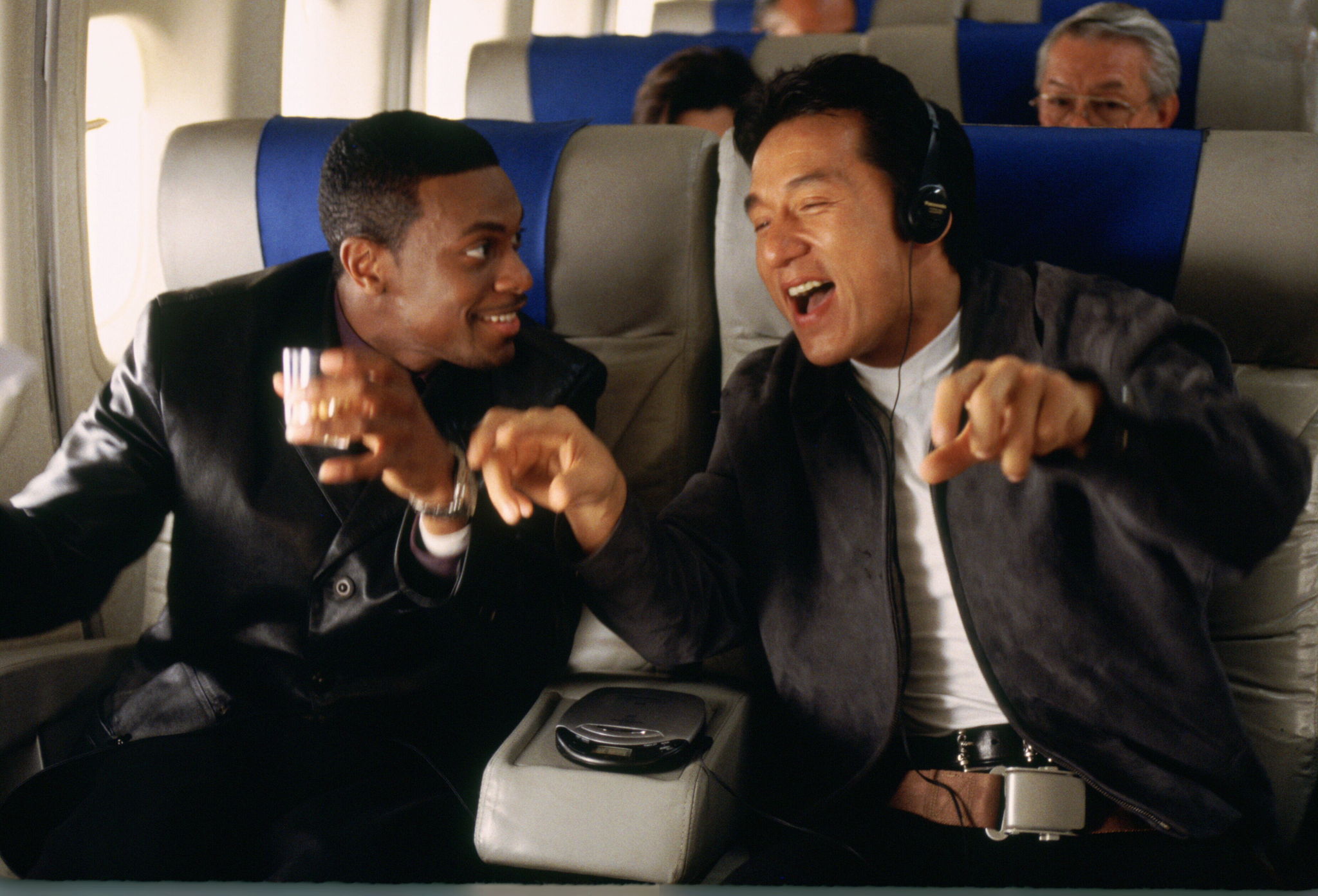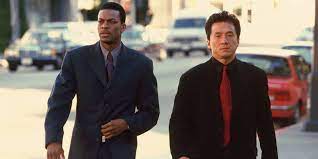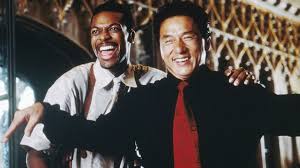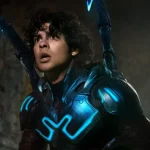🎬 Rush Hour (1998)

Rush Hour (1998) Review
When it comes to action-comedy, few films are as iconic and beloved as Rush Hour (1998). Directed by Brett Ratner and starring Jackie Chan and Chris Tucker, the film is a quintessential buddy-cop movie that masterfully blends martial arts action with laugh-out-loud humor. Decades after its release, Rush Hour remains a cultural touchstone, thanks to its dynamic leads, fast-paced action sequences, and memorable one-liners.
Plot Summary
The story kicks off in Hong Kong, where Detective Inspector Lee (Jackie Chan) foils a major smuggling operation, earning him accolades from his peers. Meanwhile, in Los Angeles, the daughter of Chinese Consul Han is kidnapped shortly after his relocation to the United States. In a bid to rescue her, Han requests the assistance of Inspector Lee. However, the FBI, reluctant to involve an outsider, assigns loud-mouthed LAPD detective James Carter (Chris Tucker) to keep Lee occupied and away from the investigation.
What follows is a hilariously chaotic partnership as the mismatched duo—Lee, the disciplined martial artist, and Carter, the brash, fast-talking showboat—begrudgingly team up to solve the case. As they uncover a web of corruption and crime, the pair’s cultural differences lead to endless comedic clashes, but their growing camaraderie becomes the heart of the film.
Chemistry of the Leads
The magic of Rush Hour lies in the chemistry between Jackie Chan and Chris Tucker. Chan, known for his impeccable martial arts skills and physical comedy, plays the straight man to Tucker’s larger-than-life antics. His calm, understated humor serves as a perfect foil to Tucker’s high-energy performance.
Chris Tucker, in turn, delivers a star-making performance as Detective Carter. His rapid-fire dialogue, comedic timing, and over-the-top personality are a constant source of laughs. Tucker’s ability to inject humor into even the most intense situations balances the film’s action-packed tone.
Together, Chan and Tucker create a dynamic that’s both hilarious and heartfelt. Their initial distrust and cultural misunderstandings give way to mutual respect and friendship, a progression that feels organic and rewarding. The duo’s banter and contrasting personalities drive the film’s humor and make it endlessly rewatchable.
Action and Stunts
As expected from a Jackie Chan film, the action sequences in Rush Hour are nothing short of spectacular. Chan’s signature style—a blend of martial arts, acrobatics, and innovative choreography—is on full display. From a high-stakes fight in a Chinese restaurant to a daring rooftop showdown, the action is both thrilling and visually inventive.
What sets Chan apart is his ability to turn everyday objects into weapons and props. In Rush Hour, he uses everything from steering wheels to benches in his fight scenes, showcasing his creativity and skill. Unlike the gritty, CGI-heavy action of many modern films, the stunts in Rush Hour have a tangible, old-school charm that adds to their appeal.
Chris Tucker may not have Chan’s martial arts prowess, but he holds his own in the action department. His comedic approach to fight scenes—often involving exaggerated reactions and improvised moves—adds a layer of humor that complements Chan’s precise, disciplined style.
Humor and Cultural Clash
At its core, Rush Hour is a comedy, and much of its humor stems from the cultural differences between its two protagonists. Lee’s reserved demeanor contrasts sharply with Carter’s brash, over-the-top personality, leading to a series of fish-out-of-water moments. From language barriers to differing approaches to law enforcement, the film mines its humor from the duo’s misunderstandings and attempts to bridge their differences.
One of the film’s standout comedic scenes involves Carter attempting to teach Lee how to loosen up, resulting in a hilarious dance sequence. Another memorable moment occurs when Carter mocks Lee’s inability to speak English, only to be outsmarted by Lee’s quick wit and resourcefulness. These scenes highlight the film’s ability to balance humor with character development, allowing audiences to laugh while rooting for the pair.
Supporting Cast and Villains
While Chan and Tucker are undeniably the stars, the supporting cast adds depth and intrigue to the story. Tzi Ma delivers a strong performance as Consul Han, whose determination to find his daughter drives the plot. Ken Leung plays Sang, a ruthless henchman whose menacing presence adds tension to the action sequences.
However, the film’s primary villain, Thomas Griffin (Tom Wilkinson), is somewhat underwhelming. While Wilkinson is a capable actor, his character’s motivations and backstory lack depth, making him a relatively forgettable antagonist. This minor shortcoming is overshadowed by the film’s focus on its leads, but a stronger villain could have elevated the stakes.
Pacing and Direction
Director Brett Ratner keeps the pacing tight, ensuring that the film never loses momentum. The story moves briskly from one set piece to the next, balancing action and comedy with ease. Ratner’s direction allows the chemistry between Chan and Tucker to take center stage, while the sleek cinematography captures the vibrancy of both Hong Kong and Los Angeles.
The film’s soundtrack, featuring a mix of upbeat tracks and traditional Chinese music, complements its energetic tone. The use of music during key scenes—such as Carter’s impromptu singing—enhances the humor and adds to the film’s charm.
Themes and Legacy
Beneath its comedic and action-packed surface, Rush Hour explores themes of friendship, trust, and cultural understanding. The film’s central message—that people from different backgrounds can work together and learn from one another—resonates strongly, especially in today’s increasingly globalized world.
Rush Hour was a massive commercial success, grossing over $244 million worldwide and spawning two sequels. Its impact on pop culture is undeniable, with countless fans quoting its iconic lines (“Do you understand the words that are coming out of my mouth?”) and emulating its comedic style. The film also played a significant role in introducing Jackie Chan to mainstream American audiences, solidifying his status as a global superstar.
Weaknesses
While Rush Hour is undeniably entertaining, it’s not without flaws. The humor, while mostly effective, occasionally relies on stereotypes and cultural clichés that may feel dated by today’s standards. Additionally, the plot is fairly straightforward and predictable, serving more as a vehicle for the leads’ chemistry than a compelling narrative in its own right.
The underdeveloped villains and lack of emotional depth in certain scenes are minor drawbacks, but they don’t detract significantly from the film’s overall enjoyment. Rush Hour knows exactly what it wants to be: a fun, action-packed comedy, and it delivers on that promise.
Final Verdict
Rush Hour (1998) is a masterclass in action-comedy, showcasing the best of Jackie Chan’s martial arts prowess and Chris Tucker’s comedic genius. Its winning formula of dynamic leads, thrilling action, and laugh-out-loud humor has cemented its place as a genre classic. While the film may show its age in certain aspects, its charm and entertainment value remain timeless.
For fans of buddy-cop movies or anyone seeking a feel-good action-comedy, Rush Hour is a must-watch. It’s a film that not only entertains but also reminds us of the power of friendship and the importance of embracing diversity. Even after more than two decades, Rush Hour continues to delight audiences, proving that some movies truly stand the test of time.










